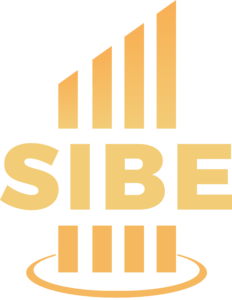Have you been wondering how you can start a business in Ghana with no money? You’re not alone. Many people, just like you, dream of setting up their own businesses and becoming their own bosses.
Unfortunately, some people end up completely putting off their dreams when they realize that it takes money to start a business. But is it really impossible to launch a business without any startup capital in Ghana? Let’s find out!
Can you start a business with no money?
Yes! You can start a business with little or no money. Although it is sometimes challenging to not have startup capital before thinking of starting a business, it isn’t impossible to start some businesses with the little you have and bootstrap or raise capital along the way. We have detailed everything in our e-book titled Zero to Business.
You can get a copy for more insights from our lead business consultant on how you can start your business with zero capital.
But before that, let us explore how feasible it is to start a business with little or no capital and keep it thriving instead of it being another failed business.
Identifying Your Business Idea
The foundation of any successful business is a solid idea that fills a need or solves a problem. Whether you have large sums of capital or no capital for your business, your business idea should focus on solving a specific problem for sustainability in the long run.
Here are five ways to help you generate a business idea that suits the Ghanaian market:
Identify Local Needs
Observe your surroundings and identify gaps or challenges within your community. Consider how your business idea can address these needs, whether it’s providing affordable healthcare solutions or improving access to clean water.
Leverage Local Resources
Ghana is blessed with abundant natural resources, including agriculture and minerals. Think about how you can harness these resources to create value. For instance, you could start a small-scale agricultural venture.
Embrace Technology
Technology is rapidly advancing in Ghana, opening doors for innovative business ideas. Consider ventures related to fintech, e-commerce, or digital marketing services that leverage the growing tech-savvy population.
Cultural and Artistic Ventures
Ghana has a rich cultural heritage and a thriving arts scene. You can possibly explore businesses centred around traditional crafts, cultural experiences, or the creative arts. For example, you could create a platform to promote and sell local art and crafts online.
Green and Sustainable Initiatives
Environmental consciousness is gaining momentum in Ghana. Look for eco-friendly business ideas, such as recycling, renewable energy, or sustainable agriculture, that align with global and local sustainability trends.
Conducting Market Research
Market research is a critical step in understanding your potential customers, competition, and market dynamics. This information is invaluable for making informed business decisions. Here’s how to conduct effective market research:
- Identify Your Target Audience: Understand the demographics, preferences, and behaviours of your potential customers. Conduct surveys or interviews to gather insights into their needs and desires.
- Analyze the Competition: Thoroughly research your competitors to identify their strengths, weaknesses, and unique selling points. Look beyond direct competitors to understand the broader market landscape.
- Leverage Local Insights: Utilize local statistics, reports, and market studies from sources like the Ghana Statistical Service and industry-specific associations. This data will provide valuable insights into market trends and consumer behaviour.
- Assess Market Demand: Evaluate the demand for your product or service within the Ghanaian market. Are there underserved niches or unmet needs that your business can address effectively?
Creating a Business Plan
A well-crafted business plan is essential for outlining your business strategy and attracting potential investors or lenders. Here’s how to create a business plan tailored to your Ghanaian venture:
- Executive Summary: Begin with a concise overview of your business concept, mission, and vision.
- Market Analysis: Provide a detailed analysis of your target market, competitors, and relevant industry trends in Ghana.
- Business Description: Explain the nature of your business, including its goals, objectives, and the value it aims to deliver to customers in Ghana.
- Products or Services: Describe your offerings and how they meet the specific needs of the Ghanaian market.
- Marketing and Sales Strategy: Outline your plan for reaching and acquiring customers within Ghana. Consider the local marketing channels and tactics that will be most effective.
- Financial Projections: Present your financial forecasts, including startup costs, revenue projections, and a break-even analysis. Tailor these projections to the Ghanaian economic context.
- Operational Plan: Detail how your business will operate in Ghana, including factors like location, equipment, and staffing requirements.
For a more detailed explanation of creating a business plan, check out our post on how to write a business plan.
Creating an MVP and Testing Your Idea
Rather than committing substantial resources upfront, consider creating a Minimum Viable Product (MVP) to validate your business idea in the Ghanaian market. Here’s how you can go about it:
- Build a Prototype: Develop a simplified version of your product or offer a scaled-down version of your service that demonstrates its core value.
- Gather Local Feedback: Share your MVP with a small group of potential customers, listen to their feedback, and use it to refine your offering to better meet their needs.
- Iterate and Improve: Continuously iterate and improve your MVP based on the feedback received from the Ghanaian market. This agile approach ensures that your final product or service aligns closely with local preferences.
Ensuring Steady Cash Flow with the Right Business Model
Maintaining a steady cash flow is essential for every new business, especially when you have limited financial resources. Consider these strategies to ensure your business model supports consistent cash flow:
- Subscription-Based Models: Offer subscription-based services to generate a recurring revenue stream. For example, a software company could provide monthly or annual subscriptions for its services.
- Freemium Model: Provide a basic version of your product or service for free while offering premium features or upgrades at a fee.
- Pre-Selling: If applicable, consider pre-selling your product to customers before it’s fully developed. This can provide initial capital for production.
- Barter and Trade: Explore partnerships with other businesses in Ghana to exchange goods or services instead of immediate cash payments. This can help you conserve your financial resources.
Leveraging Organic Marketing Strategies
Effective marketing doesn’t always require a substantial budget. You can leverage organic marketing strategies to reach more customers. For instance, using word-of-mouth can be a great way to get new customers. You can also explore organic online marketing to reach more prospects. Here are two key approaches:
Social Media Marketing
The use of social media platforms such as Facebook, TikTok, Instagram, Twitter, and WhatsApp is on the rise in Ghana. Create engaging content, interact with your audience, and make use of relevant hashtags to increase your visibility and reach in the local market.
Google My Business
Ensure that your business is listed on Google My Business. This will help local customers in Ghana find you through Google searches, maps, and reviews for free.
Exploring Funding Options
While the goal is to start a business with minimal financial investment, you may still require some initial capital to kickstart your business. Here are five funding options you can consider and explore for possible startup capital:
Bootstrapping
Use your personal savings and resources to fund your business. Be prepared to cut unnecessary expenses in your personal life to allocate more funds to your business.
Friends and Family
Approach friends and family members who may be willing to invest in your business. Ensure that any financial arrangements are formalized with clear terms and expectations.
Microfinance Institutions
Ghana has a robust microfinance sector that provides small loans to entrepreneurs and small businesses. Research local microfinance institutions and apply for a microloan.
Crowdfunding
Utilize crowdfunding platforms like Cofundie or GoFundMe to raise funds for your business. Create a compelling campaign and offer attractive rewards to backers.
Government Grants and Programmes
Investigate government grants and programmes designed to support small businesses and startups in Ghana. Organizations such as the Ghana Enterprises Agency, formerly known as the National Board for Small Scale Industries (NBSSI) offer opportunities for funding and support.
Final Thoughts for Aspiring Entrepreneurs Who wants to Start a Business in Ghana with No Money
Yes, you can start a business in Ghana with no money, however, you need to be strategic and patient in your approach. Before you dive into the startup process, here are a few things you should keep in mind.
1. Don’t Quit Your Job (Yet)
Starting a business takes time to generate income. Keep your current job or source of income while you work on your business on the side. This will help cover your living expenses and provide capital for your venture.
2. Tap into Free Resources
Leverage free resources such as online courses, business development workshops, and mentorship programmes. Organizations like the Ghana Chamber of Commerce and Industry often offer valuable guidance to entrepreneurs.
3. Network Effectively
Building a strong network can open doors to opportunities, partnerships, and potential customers. Attend local business events, join industry associations, and connect with fellow entrepreneurs.
For professional insight on how you can start a business in Ghana with no money, get a copy of Zero to Business. Zero to Business is a transformative book from our lead consultant that offers practical insights, reveals creative strategies, dispels popular myths, and provides a clear roadmap for aspiring entrepreneurs who are determined to start their own businesses, even when financial resources seem scarce.
Need help to start? Request a call!





